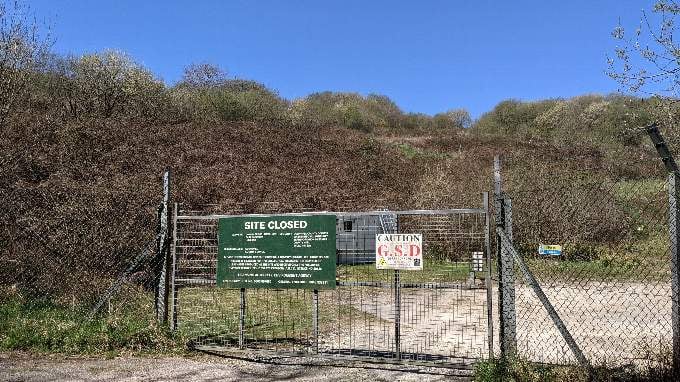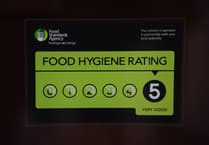A PARISH Council and residents have been left bitterly disappointed after an extension and expansion to activities at the Connon Bridge waste transfer site were agreed.
Vice chairman of St Pinnock Parish Council Doug Mills has accused Cornwall’s Strategic Planning Committee of “putting food scraps before people”.
The scheme will see the creation of a large shed so that food waste from around the Duchy can be stored before being taken on for processing in other counties.
Cornwall Council will introduce a separate food waste collection in 2022, but the county has no anaerobic digestion plant to deal with this type of waste, nor are there plans as yet to build one.
Meanwhile, Cornwall’s road sweepings operations, currently based at St Austell, will also now move to the East Taphouse site.
Vehicle movements to and from Connon could double to more than 200 each day.
Cllr Mills says that residents are not only worried about traffic, but also about bad smells. Rather than a negative air pressure shed, such as is found at the waste transfer site in Plymouth, the Environment Agency has agreed to fast-acting doors which will be shut once a vehicle is inside – and an ‘odour suppression system’ to be used if deemed necessary, which Cllr Mills has described as ‘air freshener’.
Cllr Mills said that residents of East Taphouse had lived with other people’s rubbish for 50 years and had had enough. A suggestion to use a legal covenant to prevent activities at the site beyond the temporary permission date of 2036 was rejected.
In his address to the committee, Cllr Mills said: “Why are we being singled out as Cornwall Council’s dumping ground? We are being overridden because food scraps matter but we don’t.”
Cornwall Councillor Jane Pascoe is also very disappointed in the strategic committee vote. She had set out to the committee how the plans for Connon contravened several of the local authority’s own policies.
“The increase in the number of vehicle movements flies in the face of Cornwall Council policies to tackle the Climate Emergency,” she said. “The food waste will be collected and deposited at Connon Bridge. It will be picked up again in more lorries and taken by road across the Tamar Bridge to Devon and then onwards to anaerobic digesters at Langage, Holsworthy and Somerset.
“Double handling and the additional extra miles will massively increase transport cost and carbon emissions and fail to bring economic or any other benefits to Cornwall from the recovered energy or bi-products. And do we really want to send additional HGVs through Tideford, an Air Quality Management Zone?”
Appropriate
Cllr Pascoe said she wondered if the public realised that lorries already criss-cross the county taking bulky waste to Connon to be shredded and then back to St Dennis to the incinerator – or that Cornwall was also importing waste by road to feed the incinerator.
Committee members said that while they sympathised with the concerns of local people, there were no planning reasons to refuse permission.
Cllr Louis Gardner said that it seemed appropriate for the new operations to go on a site that is already used for waste management.
And Cllr Andrew Mitchell said: “Cornwall is hideously poor at recycling and we certainly need to up our game. This is one of the ways we can do that and it is becoming a statutory requirement to look at food waste.”
The committee adopted just one of several conditions suggested by the parish council and Cllr Pascoe to mitigate the impact of the scheme: a cap on the tonnage coming into the Connon site.




